Selina Nwulu
Replay
What might have been? A poet recalls flirtations and electric connections that could have led to a different life.
We’re pleased to offer Selina Nwulu’s poem, and invite you to connect with Poetry Unbound throughout this season.

Image by Annisa Hale/ Film processed by Moody's Film Lab, © All Rights Reserved.
Guest
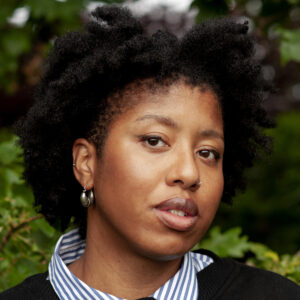
Selina Nwulu is a writer of Nigerian heritage who is based in London. Her poetry and essays have been widely featured in a variety of journals, short films, and anthologies, including the critically-acclaimed anthology New Daughters of Africa. Her first chapbook collection, The Secrets I Let Slip, was published in 2015 by Burning Eye Books and is a Poetry Book Society recommendation. She has toured her poetry extensively, both internationally and throughout the U.K. in a number of cultural institutions. She has also been featured in Vogue, ES Magazine, i-D, and Blavity, among others. Her work has been translated into Spanish, Greek, and Polish, and exhibited in Warsaw, New York, Dublin, and Glasgow. She was the Young Poet Laureate for London in 2015-16, and was shortlisted for the 2019 Brunel International African Poetry Prize. She was also a finalist for the 2021 U.K. Arts Award for Environmental Writing. A Little Resurrection is her debut full-length collection.
Transcript
Transcription by Alletta Cooper
[music: “Praise the Rain” by Gautam Srikishan]
Pádraig Ó Tuama: My name is Pádraig Ó Tuama, and years ago I was doing a poetry reading at a friend’s Lutheran church. And afterwards — you know, it had gone well. And this guy comes up to me and he says, “Well, my God, if I’d known that you were going to be at church, I’d have become a Lutheran a long time ago.” And I was about 40. And he was close to his 80s, if not in his 80s. And there was something about his ease, his engagement, his enjoyment of the language and his play, too, with being a Lutheran and the possibilities of the various reasons to become one. And I was kind of amazed at how audacious and delicious and delightful he was when he flirted with me. And I thought, “I think I need to engage with language a little bit more like you, rather than overthinking everything like I tend to do.”
[music: “Praise the Rain” by Gautam Srikishan]
“Replay” by Selina Nwulu
“When a woman flirts with you at a party, you think
how flattering as you try to fish the gaze of a man
who will not learn your name. Later, you will
replay the night like a tape in your mind’s eye.
“Play. How she stroked your cheek. Pause.
Rewind. The way her eyes tripped over
your mouth. Play. Why did opening my lips
feel like breaking bread? Stop. Fast-forward.
“Later still, you will notice how the wind
wins a fight with a friend’s headband
and makes theater out of her hair,
each strand beckoning applause
“or the sprinkle of freckles on a bartender’s face,
wonder how many constellations you could
trace with the tip of your finger as she smiles
and adds an extra wink of gin to tonic.
“Afterwards, the contours of her dress, the plunge
at its back a glittered invitation into the base
of her spine, how when she dances the zip
becomes a question mark this night cannot resolve.
“You will notice that you’re noticing.
You will wonder whether you have spent
your whole life unaware of your longing, trapped
in thistle and barbed wire
“rewinding and replaying each lost chapter
and the love there could have been.”
[music: “Waterbourne” by Blue Dot Sessions]
So the poem begins at a party, and the poet, the speaker of the poem, is flirted with by another woman. And she has been trying to “fish the gaze of a man / who will not learn your name.” And suddenly, in comparison to trying to get somebody to remember your name, there’s somebody who’s right in front of you, who’s flirting with you. And she begins to look at: what was that like? What happened there?
Later in the evening, she remembers how the other woman who was flirting with her stroked her cheek, and the way that the eyes looking at the mouth, and the way that opening her own lips felt something like “breaking bread,” felt something like a shared meal. And suddenly then she begins to look all around her and to think, “Have I been missing out?”
And it feels like, in the context of this poem, that this is a new experience for the poet. And she suddenly is realizing, “There are other ways to think about love in the world, and there are all kinds of experiences of love all around me, all kinds of experiences of sex and sensuality all around me that suddenly my own world is opened up into.”
[music: “Outstretched Hand” by Gautam Srikishan]
The body is absolutely present in this poem. It’s at the surface and it is being praised and honored and spoken in a gorgeous way. Selina Nwulu speaks about stroking the cheek, and mouth, and open lips, and watching the wind winning a fight with your friend’s headband, and the theater of her hair, “each strand” of her hair “beckoning applause.” And then looking at freckles on a bartender’s face and the “wink,” you know, adding an extra “wink of gin.” There’s a way within which even the gin is playful and flirty.
And the gaze, the looking, the being seen is one of such electricity. And she returns that, too, as she begins to look around toward other people that she’s suddenly going, “My God, of course, you’re attractive.” And the reciprocity of that, the consent of it, the joy of it, the lack of demand, and the lack of the predatory gaze is all so much part of this. It looks at what it’s like to have the gaze, the noticing, the engaging, the seeing and the being seen, and then the noticing what it’s like to be seen in the magnificence of safety and brilliance and openness and electricity.
And at one point in the poem, the poet’s attention is turning towards this person who’s been described: “the contours of her dress, the plunge / at its back a glittered invitation into the base / of her spine.” It’s so filled with movement and dance and “how when she dances the zip / becomes a question mark this night cannot resolve.” What’s that question mark? Is it a question to say, “What’s going on? Is this attraction? Why haven’t I noticed this before? What else might I not have noticed?”
And what’s so interesting in it is she’s saying, this is “a question mark this night cannot resolve,” that the experience of it isn’t about suddenly saying, “Okay, we’re going to hook up.” This is saying, “I have questions for myself. What is it that I need to notice about my life?” thinking about that in the context of love that could have been, but also thinking about that love as something about love for yourself as well as the love that you share with other people.
[music: “Daybreak” by Gautam Srikishan]
The device of this poem — “play,” “stop,” “rewind,” “fast-forward” — obviously calls to mind some kind of video recorder or video player, or maybe even a DVD player as well. But in the context of that, it’s also about time. Rewind, play, pause, stop, fast-forward. All of those are measures of time. And even at the start of the poem, there’s another indicator of time where after this party, the poet says, “later, you will / replay the night like a tape in your mind’s eye.” So “later.” So this is a poem even from the first stanza that’s demonstrating something happens and then you’re thinking about it and you’re wanting to go back to look at it and to pay attention.
And she isn’t only replaying that evening. Toward the end of the poem, she’s replaying her whole life. She’s saying, “You will wonder whether you have spent / your whole life unaware of your longing.” And so by practicing the art of looking back just to the earlier evening, somehow her whole life is being held in that. And there’s an openness, there’s a new way of reflecting, and there is new possibilities being put in front of her.
Much in all as it says, you know, “whether you have spent / your whole life unaware of your longing,” I really don’t get the sense that this is a poem of deep self-recrimination. I get the sense that this is a poem that is looking at alternatives and is looking at the future and is saying, “God, I haven’t been aware of that, but I am now and this can be a part of my life.” And not only perhaps the direction of your sexual attraction, but also then the direction of your self-attention.
It’s looking at what’s on the surface is so much about what this poem knows. Take for granted that the fellow who won’t be bothered learning your name is probably not worth your time. But who does want to learn your name? Who does want to catch your gaze? Where is it that your eye goes? Where is the energy of connection? How is it that some change is right in front of you beckoning and saying, “If you take time to notice what the possibilities are, it might be that you can see options that are here, present in front of you that are calling to you, and that perhaps in this instance, the barrier to them is your own imagination.”
[music: “Daybreak” by Gautam Srikishan]
The title “Replay” and then the reference to the tape in the mind’s eye with “play”: obviously, that word “play” can mean, you press the button and the tape goes forward, but it’s also about playing a game and the engagement with play. And one of the things that this poem is doing is inviting somebody to play with their life and to play with the possibility of what’s in front of you. To play with the joy of that, to play with each other, and to play with the idea that maybe I’ve been holding myself back and maybe there are possibilities of love that are present in front of you that if you could play them in a new way, you might find a life unfolding differently.
[music: “Daybreak” by Gautam Srikishan]
“Replay” by Selina Nwulu
“When a woman flirts with you at a party, you think
how flattering as you try to fish the gaze of a man
who will not learn your name. Later, you will
replay the night like a tape in your mind’s eye.
“Play. How she stroked your cheek. Pause.
Rewind. The way her eyes tripped over
your mouth. Play. Why did opening my lips
feel like breaking bread? Stop. Fast-forward.
“Later still, you will notice how the wind
wins a fight with a friend’s headband
and makes theater out of her hair,
each strand beckoning applause
“or the sprinkle of freckles on a bartender’s face,
wonder how many constellations you could
trace with the tip of your finger as she smiles
and adds an extra wink of gin to tonic.
“Afterwards, the contours of her dress, the plunge
at its back a glittered invitation into the base
of her spine, how when she dances the zip
becomes a question mark this night cannot resolve.
“You will notice that you’re noticing.
You will wonder whether you have spent
your whole life unaware of your longing, trapped
in thistle and barbed wire
“rewinding and replaying each lost chapter
and the love there could have been.”
[music: “Praise the Rain” by Gautam Srikishan]
Chris Heagle: “Replay” comes from Selina Nwulu’s book A Little Resurrection. Thank you to Own It Agency who gave us permission to use Selina’s poem. Read it on our website at onbeing.org.
[music: “Praise the Rain” by Gautam Srikishan]
Poetry Unbound is: Gautam Srikishan, Eddie Gonzalez, Lilian Vo, Lucas Johnson, Amy Chatelaine, Kayla Edwards, Annisa Hale, and me, Chris Heagle.
Our music is composed and provided by Gautam Srikishan and Blue Dot Sessions.
This podcast is produced by On Being Studios, which is located on Dakota land. Open your world to poetry with us by subscribing to our Substack newsletter. You may also enjoy Pádraig’s new book, Poetry Unbound: 50 Poems to Open Your World. For links and to find out more visit poetryunbound.org.
Books & Music
Recommended Reading
The On Being Project is an affiliate partner of Bookshop.org and Amazon.com. Any earnings we receive through these affiliate partnerships go into directly supporting The On Being Project.






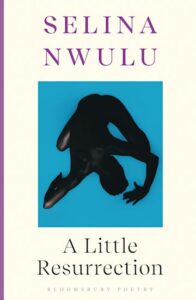
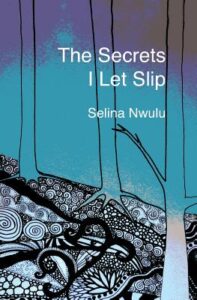
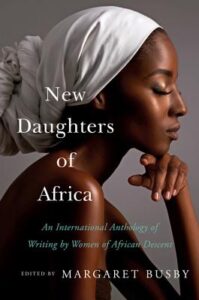

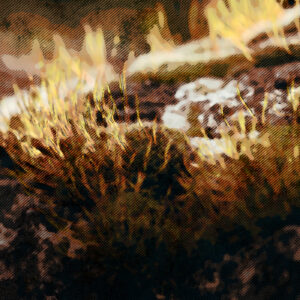

Reflections